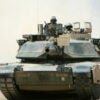At the end of December, the Senate ratified the New Strategic Arms Reduction Treaty (New START) Treaty by a vote of 71-26. Many Senators who voiced concerns regarding the treaty’s provisions and implications were persuaded to vote for it after receiving assurances from the Obama Administration that our nuclear weapons would receive much needed modernization. Although I trust these promises were made in good faith, we must ensure they will be kept through the passage of binding legislation. On May 5th, with the support of House Armed Services Chairman (HASC) Howard P. “Buck” McKeon, I introduced H.R. 1750, – The New START Implementation Act. Sen. Jon Kyl has indicated that in short time he will introduce a companion bill in the Senate.
The purpose of this bill is to hold both the current and future administrations accountable to the promises made during the New START ratification debate of 2010. Chief amongst these promises is the “grand bargain” that treaty ratification would be approved only if the administration agreed to a robust ten-year nuclear modernization program. This agreement would spend $85 billion over the next 10 years on updating warheads and modernizing our nation’s nuclear weapons.
The difficulty with the bargain is that Congress cannot appropriate money in advance for a ten year period. This bill would create a lasting link between nuclear modernization and the implementation of the New START treaty’s required reductions, and thereby hold this and future administrations accountable. While the Senate alone advises and consents to treaties, both houses of Congress share an important constitutional role in their implementation. In that vein, this bill requires that Congress be involved in any changes to our nuclear strategy.
Besides holding the administration to past promises, the bill addresses several other major components of U.S. strategic forces. This includes some concerns about what the White House may be planning in the wake of New START—nuclear weapon and triad reductions, withdrawing non-strategic nuclear weapons from Europe, and limiting missile defense capabilities. As the U.S. proceeds with nuclear reductions, it is all the more important that our strategic posture remains coherent and our deterrent remains credible. The highway of our national defense requires prudent speed bumps to guard against racing down the “Road to Zero.”
Memory of the New START treaty debate will not remain fresh for long. Introducing a bill on the broad array of our strategic posture would remind the administration and the public—both today and in the coming years—that quantitative reductions must be accompanied by qualitative improvements to our strategic posture. Failure to lay down a precedent for Fiscal Year 2012 will make it that much harder in the future to remind legislative and executive branch colleagues to sustain modernization in the years to come. This bill also seeks to stem the repeat of discussion surrounding international agreements that might limit our nation’s freedom of action in the area of missile defense.
While my legislation awaits full consideration by the Armed Services Committee and the House, I have already included three of its provisions in this year’s National Defense Authorization Act (NDAA). These provisions are to be considered by the HASC on May 11th. This includes Section 6 which directs the Secretary of Defense to assess whether current and future U.S. nuclear forces meet their deterrence and defense objectives. Also, Section 7 of the New START Implementation Act included in the NDAA sets an annual review of the safety, security, reliability and effectiveness of our nuclear delivery systems and the command over these weapons. Finally, Section 9 included in the NDAA codifies fiscal year 2010 modernization plans for our nuclear stockpile, delivery systems, and infrastructure.
Maintaining a robust nuclear deterrent is essential in today’s world of emerging threats. Our country and our allies around the globe rely on America’s nuclear weapons as a deterrent against those nations whose intentions remain unclear and increasingly aggressive. Its passage would reaffirm the importance of extended deterrence for our allies, including the value of forward-deployed non-strategic weapons in Europe. I look forward to working alongside Chairman McKeon and Sen. Kyl in seeing that the New START Implementation Act becomes law.
The views expressed by guest bloggers on the Foundry do not necessarily reflect the views of The Heritage Foundation.





























6 Replies to “Guest Blogger: Rep. Michael Turner (R-OH) on New START Implementation Act”